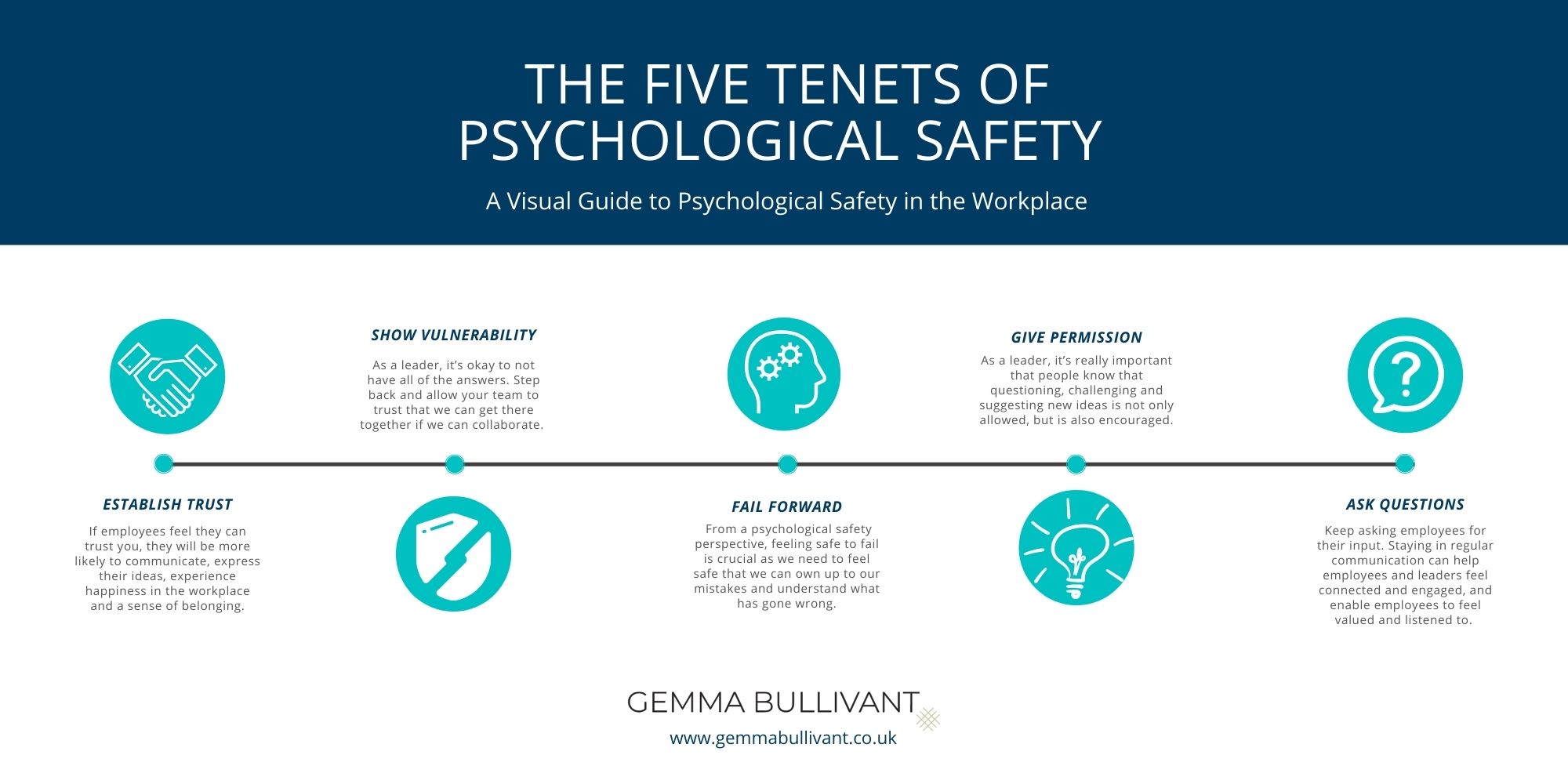HR departments have been under a lot of stress over the past year, with HR professionals playing a pivotal role in keeping the workforce happy, productive and resilient. In particular, HR leaders have been at the forefront of their business’ response to COVID-19, while aiming to support employees who may be struggling with their wellbeing, resilience and mental health.
The way we work has rapidly changed, with more of us working from home and with some businesses now closing their physical offices permanently to allow for remote working, and many considering a hybrid model of remote and office working.
According to Mind, 1 in 4 of us will experience a mental health problem of some kind each year in England, with 50% of those suffering from mental health admitting that the workplace has a huge impact. Poor mental health in the workplace can lead to a reduction in engagement, productivity and presenteeism, as well as an increase in staff turnover.
Now is the time for HR leaders to turn their attention toward recovery and to ensure that employees feel even more supported in the workplace, wherever that may be. Good mental health at work and good management go hand in hand. If you’re wondering how, as an HR professional or a leader, you could be able to support mental health in the workplace, keep reading.
Psychological Safety In The Workplace
Psychological safety is the foundation of the highest performing teams and individuals. Having a psychologically safe workplace is more important now than ever.
If an environment is felt to be unsafe, we are less likely to speak up and admit to making mistakes. This can also link to a sense of not feeling included, unable to innovate and be creative, as well as make it difficult for employees to open up in these environments. We are more likely to respond with defence mechanisms and a stress response if we feel unsafe. To foster psychological safety we need to take a non-judgmental approach wherever possible.
However, in workplaces that allow us to feel psychologically safe and employees are able to speak up and admit to mistakes, these employees are found to be more productive, engaged and are generally much healthier.
The Five Tenets of Psychological Safety:
I was invited to talk to wellbeing experts, Point3 Wellbeing, about Psychological Safety in the Workplace. Listen to the full conversation by watching our webcast, Unpacking Psychological Safety | Walk the Talk.
The following is a summary of the five key areas I suggested focusing on.
1. Establishing Trust
The need for trust in the workplace is a fundamental building block in any business and is important with effective management and employee performance. If employees feel they can trust you, they will be more likely to communicate and express their ideas. In my own academic research, I have identified a direct link between trust in management and employee engagement, which is connected to employee productivity.
There are lots of ways to establish trust in the workplace, such as
- Trusting employees to work from home
- Giving employees the choice to work flexible hours if that is their preference
- Having a transparent culture, meaning that you are open and honest about your plans and operations.
When employees are able to deeply trust their managers, they are more likely to experience happiness in the workplace and a sense of belonging. This means that employees will be more open to discussing their thoughts and feelings with their leaders or those in their wider team. Being transparent with operations and plans can also improve employee productivity, morale and satisfaction, therefore promoting employee retention rates at the same time.
Quite often with businesses, the say/do gap is too wide – what the values are (the ‘say’) are not reflected in decisions and actions of the business leaders (the ‘do’).
If your values say one thing, and your behaviour contradicts this, employees are likely to lose trust and disengage from their workplace.
2. Show Vulnerability
As a leader, you should understand that it’s okay to show the chinks in your armour, and be ok with not having all of the answers at all times.
Amy Edmondson, Professor at Harvard Business School, summarises the idea of this with the quote: “As a leader, you need to let people know that you have the compass, not the map.” This means that people need to have faith that you know the general direction of travel, but you don’t necessarily know the exact route you will take, and that they can trust that you will guide them. Essentially, it’s okay to let people know there’s a compass in your hand, but not a map with a clearly defined route on it.
It’s crucial to keep engaging, keep showing up and to create an environment where others can show their own vulnerabilities in order to feel psychologically safe.
In the famous words of American researcher story-teller and author, Brené Brown, “Vulnerability is not winning or losing, it’s having the courage to show up and be seen when we have no control over the outcome.” Vulnerability is courage when you’re uncertain, courage when things might go wrong, and courage even when you don’t have all of the answers. Rather than the outcome, it’s about just being there.
We all fall into the trap of feeling like we have to know the answers, when most of the time, we do not. Instead, we need to step back and think that people just need to trust that we can actually get there together if we can collaborate together.
New Zealand Prime Minister, Jacinda Ardern, is a fantastic example of this during the very early stages of the COVID-19 pandemic. Without having the answers, Jacinda showed up early to communicate with the country under uncertain terms with the approach of “What we know right now is this, and this is what we’re going to do.” New Zealand immediately went into a level two lockdown, followed by a level four lockdown just two days later, when other countries failed to respond accordingly.
“As a leader, you need to let people know that you have the compass, not the map.” Amy Edmondson
3. Adopt a Fail Forward Approach
The concept of failing forward, written by John C. Maxwell in Failing Forward, effectively highlights the reasons why we should learn from our mistakes. In the book, Maxwell says “The question is not if you will have problems, but how you are going to deal with them. Stop failing backward and start failing forward!”
We should think more about creating an environment where failure and making mistakes is okay, providing that we are learning. With that being said, if we keep making the same mistakes, we then have a problem.
Failing at something doesn’t define you as a failure, it’s the activity that has failed rather than you failing as a person. From a psychological safety perspective, feeling safe to fail is crucial as we need to feel safe that we can own up to our mistakes and understand what has gone wrong.
It’s okay to make mistakes and it’s okay to fail. If we feel like we can’t fail and make mistakes, we’re far more likely to feel unsafe in our surroundings.
4. Give Permission
It isn’t enough to say that your door is always open. Regular reminders that challenge is not only ok, but expected, will give employees a safe space to feel they can speak up. You should also be open that your ideas may not be the best ideas, giving people the permission to disagree with you for more effective ways of working as a team in an environment that’s more productive, innovative and safe.
As a leader, it’s really important that people know that questioning, challenging and suggesting new ideas is not only allowed but is also encouraged.
5. Ask Questions
With employers, leaders, managers and HR professionals playing a pivotal role in the mental health and wellbeing of employees, it’s important that organisations take a genuine interest in their employees. While we are working in remote times, this can leave a feeling of “out of sight, out of mind” for employees.
Now, more than ever, we need to be asking our employees for input.
Staying in regular communication can help employees and leaders feel connected and engaged, and enable employees to feel valued and listened to.
Many successful remote businesses will establish daily check-ins to allow for a collaborative and independent workforce. These check-ins should be regular and act as space for employees to consult with you, voice their concerns and ask you questions.
One-to-one reviews can make or break relationships with employees. When done in the right way, these regular reviews allow for employees to confide in their leader or manager and discuss their performance and any particular concerns. But done in the wrong way, they can destroy all trust. Helping managers to approach these conversations in the right way is crucial.

Do You Want to Improve Psychological Safety in Your Workplace?
I create an integrated approach to support and drive growth while creating a culture of psychological safety within the workplace. My blend of HR Consulting and wellbeing coaching supports all employees, leaders and managers within the workplace to proactively promote and maximise wellbeing.
With a wealth of training and experience with wellbeing and mental health, I can create a unique HR strategy that works for your business and industry, puts your employees first and prevents physical and mental issues before they occur.
If you want to learn more about wellbeing and mental health in the workplace, then contact me today, to learn more about our services.
To find out more about psychological safety in the workplace, please watch the Unpacking Psychological Safety webinar on YouTube.



